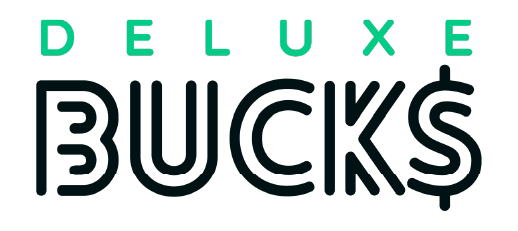Think of a lifeline or a financial safety net for those dealing with anxiety. This help could be closer than you think, with support from programs like Supplemental Security Income (SSI) and Social Security Disability Insurance (SSDI). These programs are a big help for people facing mental health issues. They offer up to $943 monthly for individuals and $1,415 for couples through SSI. For those with SSDI, the maximum benefit is $3,8221. So, peace of mind can be more than just a feeling—it can be real. Navigating the way to get these benefits may seem complex. Yet, knowing how the process and payments work can lead you to the financial support that brings stability.
But it’s crucial to know that support levels vary across the states. Some states, like Arizona and Mississippi, rely only on federal support and don’t add their own funds for mental health1. On the other hand, states like Connecticut stand out. There, over 85,000 people get disability benefits, and more than 13,611 deal with conditions like depression and bipolar disorder2. This shows how different the support can be across the U.S. It underlines the importance of understanding what financial help for anxiety treatment is available to you.
Key Takeaways
- Grasp the scope of financial support with SSI providing up to $943 monthly for individuals and $1,415 for couples1.
- Recognize SSDI as a path to up to $3,822 monthly benefits, facilitating stability amidst mental health challenges1.
- Awareness of state-by-state variations in supplemental mental health funding is key to effective planning2.
- Understand how benefit payment schedules can impact your monthly budgeting, ensuring timely financial assistance for anxiety treatment.
- Acknowledge that some states do not provide additional funding for SSI benefits, impacting the level of support available1.
Understanding SSI and SSDI: Key Avenues to Financial Support for Mental Health
For those facing mental health issues, it’s key to find good financial help. SSI and SSDI are important for people with anxiety disorders. They make sure money help is there for those who need it.
The Basics of Supplemental Security Income (SSI) and Payment Schedules
SSI is vital for those low in income and assets, offering funds for anxiety relief. Payments are made monthly, either directly deposited or to a Direct Express Debit Mastercard. This ensures secure and efficient funding. The highest monthly SSI benefit anticipated in 2024 is $943 per person3. These payments are carefully adjusted based on the recipient’s financial situation. This highlights the value of financial support for mental health. It’s smart to check how bank policies might affect getting your funds4.
Differences and Payment Dates for Social Security Disability Insurance (SSDI)
SSDI provides support based on work history and Social Security contributions. It’s for those who paid into Social Security until retirement. Payments come on a Wednesday each month, depending on your birthday. Always keep your bank info updated with the Social Security Administration. This helps avoid payment delays. It’s crucial to note that SSDI and SSI are distinct but can be combined, each following its payment rules4.
Evaluating Eligibility: Navigating the Complex Landscape of Disability Benefits
Figuring out if you’re eligible for SSDI or SSI is a key first step. Both need you to meet specific medical and technical rules. Often this involves comparing your condition to the SSA’s Impairment List. For SSDI, your work and tax records are important4. SSI looks at your income and assets to ensure help goes to those truly in need. Applying means providing lots of medical proof to show how your anxiety affects your work4.
Whether through SSDI or SSI, there are ways to get financial help for anxiety. It’s critical to check if you qualify for each program. Getting advice from experts or the Social Security Administration can make the process smoother and more successful.
Maximizing Your Financial Resources: Navigating Health Insurance and Savings Accounts
Getting a grip on your finances for anxiety care is more important than ever today. With economy changes, it’s vital to know how to budget for anxiety treatments. This part talks about using health savings accounts (HSAs), choosing the best medical plans, and improving your financial stability with 401(k)s to support anxiety care costs.
Unlocking the Potential of Health Savings Accounts (HSA)
HSAs give a triple tax benefit, which is great for covering anxiety treatment costs. You can put money in before taxes, it grows tax-free, and you don’t pay taxes when you take it out for medical bills. For 2024, individuals can put in $4,150 and families $8,3005. HSAs are not just for anxiety treatments but are key for your overall financial planning too.
Comparing Medical Plans and Premium Costs to Minimize Out-of-Pocket Expenses
Finding the best medical plan is crucial for managing the cost of anxiety care. Different plans from your job have different premiums, deductibles, and out-of-pocket limits. If you don’t expect many doctor visits, choosing a plan with low premiums but high deductibles could save money. But, if you need regular anxiety treatment, a plan with higher premiums but lower out-of-pocket costs might be better, keeping you financially ready for care costs6.
Investment Strategies: Maximizing Your 401(k) for Long-Term Security
Building long-term financial security helps support your anxiety treatment indirectly by making your financial future stronger. Joining a 401(k) plan with employer matching can really grow your savings. Just contributing enough to get the full match from your employer can majorly increase your retirement funds. This offers a sense of financial security and helps lessen worries about future health expenses7.
| Plan | Contribution Limit | Tax Benefit |
|---|---|---|
| Individual HSA | $4,150 | Tax-free growth |
| Family HSA | $8,300 | Tax-free withdrawals (for qualifying expenses) |
| 401(k) Contribution | Varies | Employer Match |

By smartly using these financial tools, you tackle not just the immediate costs of anxiety care but also build solid financial security for the future. Always remember that being proactive about your finances is crucial for both your mental and financial health.
Conclusion
Our journey has shown us how key it is to find support for anxiety and mental health. We’ve learned that getting the right financial help for anxiety treatment is vital. This lets people facing mental health challenges get the help they need. A study with 22 people showed how much financial stress affects our mind and body8. With costs of healthcare and living on the rise, it’s clear we need easily available funds for mental health.
Looking into benefits like Supplemental Security Income (SSI) and Social Security Disability Insurance (SSDI) is crucial. They offer more than just money each month; they’re a critical support for those in need. Managing your money well through Health Savings Accounts (HSAs) and 401(k)s can help lessen anxiety. It can also improve your mental health over time. We also see how debt and depression can form a cycle, especially in older adults. This makes financial guidance and public help important9.
Making choices based on good financial and mental health practices is key. Recent studies show how money problems and stress are connected. People with lower incomes often face more mental health issues9. Knowing this, aim for financial stability. Use the support out there and take charge of your mental health. Your peace of mind is priceless. With careful planning and the right help, you can work towards a secure and healthier future.
FAQ
How much can I receive in monthly benefits for anxiety relief?
What are the key differences between SSI and SSDI?
How do payment schedules work for SSI and SSDI benefits?
What determines eligibility for SSI and SSDI programs?
How can a Health Savings Account (HSA) assist with anxiety treatment expenses?
What should I consider when comparing medical plans for anxiety treatment?
How do I maximize my 401(k) for long-term financial security, including provisions for anxiety treatment?
Source Links
- When Will SSI Payments Be Deposited for April, May, and June 2024? – https://www.clausonlaw.com/blog/ssd/when-will-ssi-checks-be-deposited/
- Connecticut Disability Benefits: Qualify, Apply, and Get Approved | Atticus – https://www.atticus.com/advice/disability-help-by-state/connecticut-disability-benefits
- Financial Lifeline: Exploring the SSI Amount for Children with Autism – https://www.brighterstridesaba.com/blog/how-much-does-a-child-with-autism-get-from-ssi
- Disability Benefits For Mental Health Disorders – Bedrock Recovery Center – https://bedrockrecoverycenter.com/articles/disability-benefits-for-mental-health-disorders/
- The relationship between financial and mental health – https://www.securian.com/insights-tools/articles/relationship-between-financial-mental-health.html
- Unlocking Financial Wellness: Maximizing Your Financial Health – https://www.yourmoneyline.com/blog/unlocking-financial-wellness-maximizing-your-financial-health
- Impact of financial literacy, mental budgeting and self control on financial wellbeing: Mediating impact of investment decision making – https://www.ncbi.nlm.nih.gov/pmc/articles/PMC10645357/
- Firsthand Perspectives Exploring the Mental-Financial Health Connection – Financial Health Network – https://finhealthnetwork.org/research/firsthand-perspectives-exploring-the-mental-financial-health-connection/
- Financial stress and depression in adults: A systematic review – https://www.ncbi.nlm.nih.gov/pmc/articles/PMC8863240/


